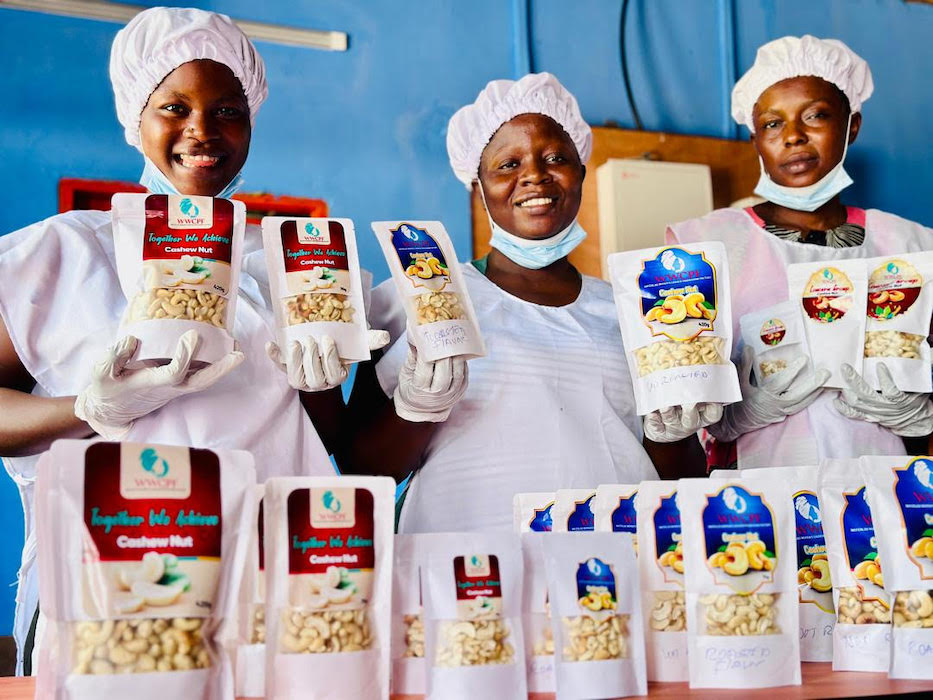Cashew processors happily display their products in Sierra Leone.
At a ceremony organized in Newton, Sierra Leone at the end of March, 2024, the European Union (EU), in collaboration with Solidaridad West Africa and other partners, commissioned the country’s first modern cashew processing factory.
Constructed with funding from the EU under the Boosting Agriculture and Food Security project, the factory provides a safe and hygienic environment for cashew processing and employs over 300 women and youth from the Waterloo Cashew Processors and Sellers Association.
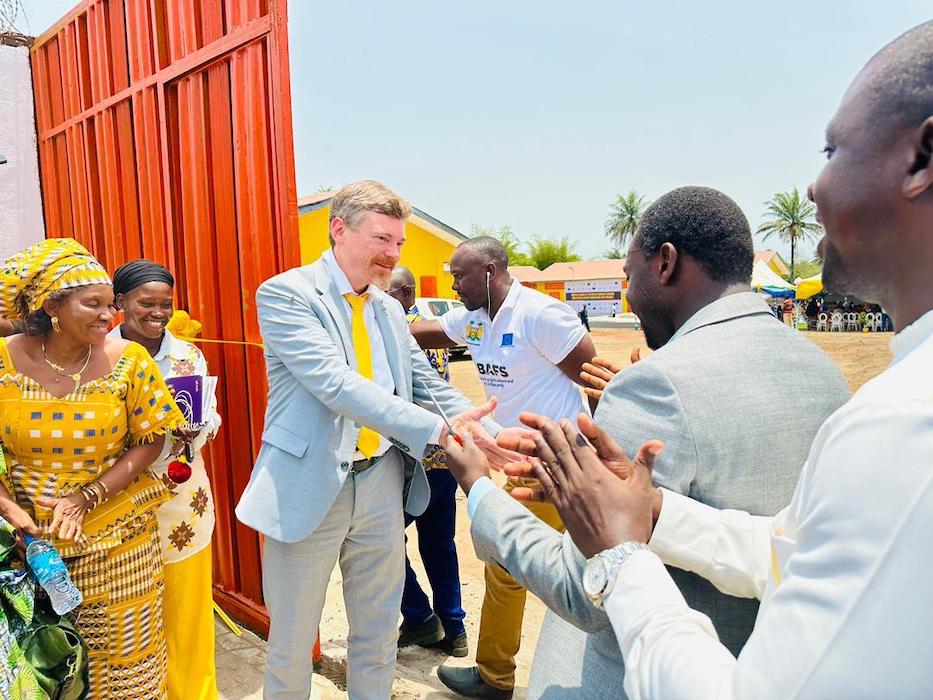
The facility is estimated to be able to process over 800 kilograms of raw cashew nuts daily and about 200 metric tonnes annually. The increase in production is expected to boost revenue for cashew farmers and processors while improving the cashew value chain in the country.
The facility will also create direct linkages for farmers to sell their raw cashew nuts to processors. With additional equipment, the factory can be upgraded to increase capacity and production.
Head of the European Union Delegation to Sierra Leone, Manuel Müller, said that the cashew processing factory aligns with the EU’s commitment to support the country’s efforts to foster sustainable agriculture and food security.
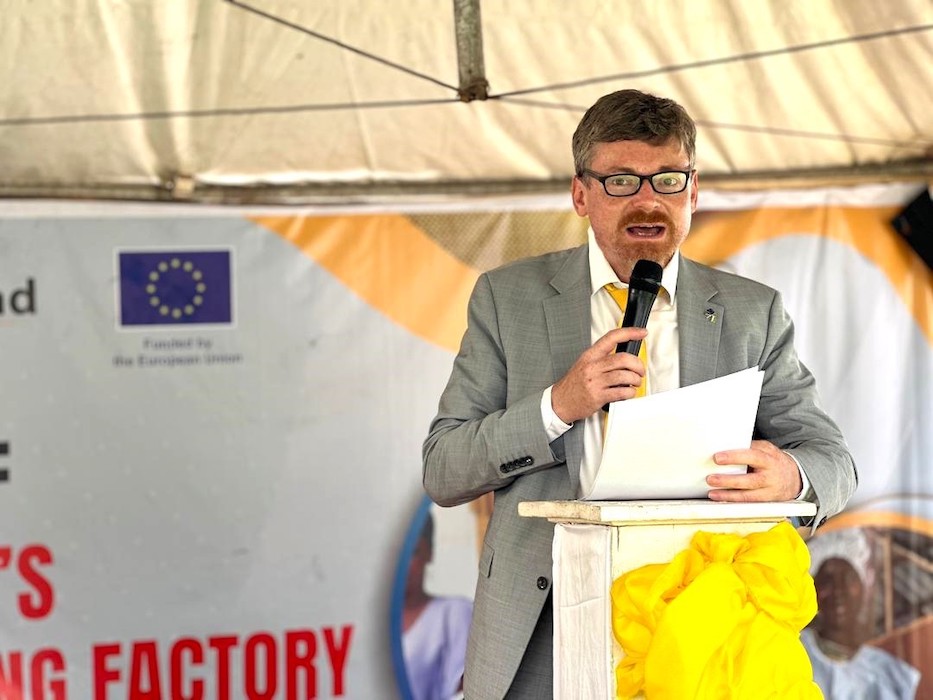
By providing a hygienic and efficient processing environment, the factory will increase cashew production, improve cashew quality, and ultimately boost incomes for cashew farmers and processors.
Manuel Müller, Head of the European Union Delegation to Sierra Leone
Müller commended Solidaridad West Africa and the Cotton Tree Foundation for their expertise and their efforts to implement the project which has achieved impactful results. He pledged the European Union’s commitment to support initiatives aimed at strengthening agriculture and improving livelihoods.
Isaac Gyamfi, Regional Director of Solidaridad West Africa, highlighted the collaborative effort between Solidaridad and other stakeholders to enhance the impact of the project. He emphasized the importance of cooperation in achieving sustainable agricultural development.
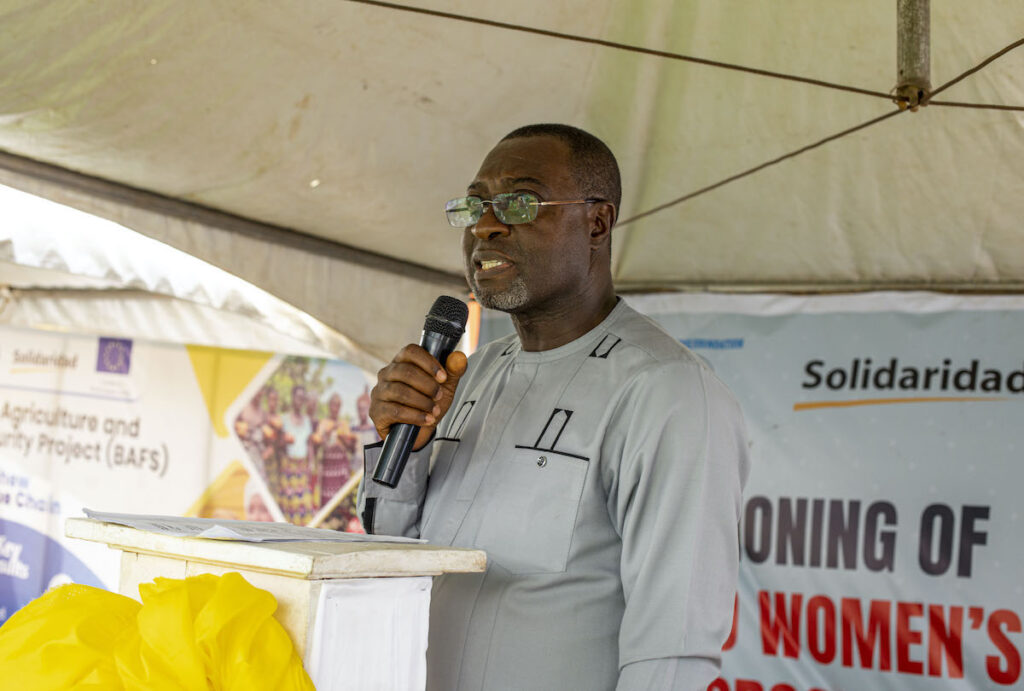
He also provided additional insight into the successful transfer of cashew seedlings from Ghana to Sierra Leone, and discussed Solidaridad’s similar initiatives in the cocoa and coffee sectors as part of the work to improve the cultivation of cash crops in Sierra Leone.
Closeout of Boosting Agriculture and Food Security
The event also marked the official closeout of the Boosting Agriculture and Food Security project implemented by Solidaridad West Africa and the Cotton Tree Foundation in collaboration with the Ministry of Agriculture and Food Security, the National Authorizing Organization, and other development partners from July 2019 to March 2024.
The project aimed to enhance cashew, cocoa and coffee productivity and rural incomes through tree crop diversification, agroforestry promotion, and the support for trade and value addition.
Dr. Henry Musa Kpaka, the Minister of Agriculture and Food Security of Sierra Leone commended Solidaridad for their contributions, particularly in providing high-quality planting materials and for efficiently implementing the project.
Reflecting on the significance of the project, Dr. Kpaka underscored the role of the project in advancing Sierra Leone’s agricultural sector, particularly in the production of cashew, cocoa and coffee. He emphasized the importance of these cash crops in supporting the government’s Feed Salone strategy while doubling export earnings.
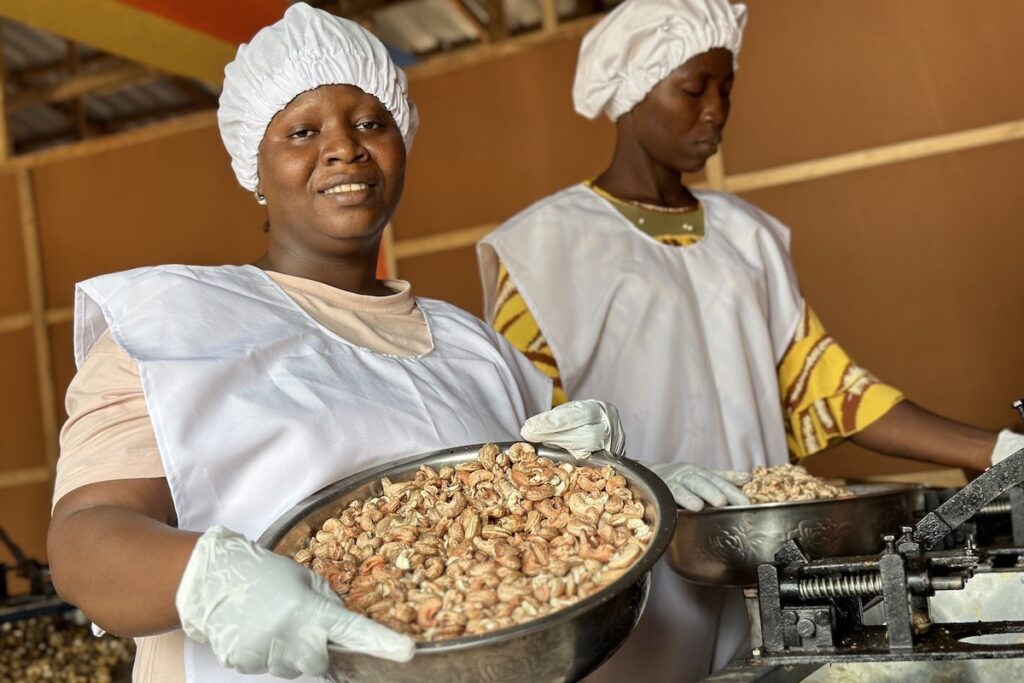
Key results and achievement
Under the Boosting Agriculture and Food Security project, 7,818 smallholder farmers across 12 districts learned and implemented better agricultural practices, which led to increased production.
These farmers also received extension services that supported the planting of improved varieties of cashew, coffee and cocoa seedlings on a total of 5,182 hectares (cashew on 4,441 hectares, cocoa on 610 hectares, and coffee on 131 hectares).
Additionally, the project established over 200 Farmer Field Schools across Sierra Leone to train smallholder farmers in farm management practices, and created 280 Village Savings and Loans Associations (VSLA) to ensure smallholder farmers have access to financial resources.
Solidaridad, through the project, has enhanced the capacity of Ministry of Agriculture and Food Security staff nationwide in policy development, agronomic best practices, and climate-smart solutions. The project supported the design, printing and distribution of policies regarding cashew, cocoa and coffee. These provided a roadmap to local governments, farmers, processors and traders and enhanced value chains in the tree crop sector.
Building upon the established policies, Solidaridad crafted abridged versions tailored for easy comprehension and utilization by stakeholders, particularly Ministry of Agriculture and Food Security block extension specialists.
Solidaridad’s efforts have facilitated extensive awareness of the cashew, cocoa and coffee policies throughout the country via workshops, television, radio broadcasts, and radio jingles broadcast in nine local languages.
The capacity of 13 national NGOs and 3 community-based organizations engaged in the district level of the project implementation was enhanced through training, coaching and mentoring by Solidaridad.
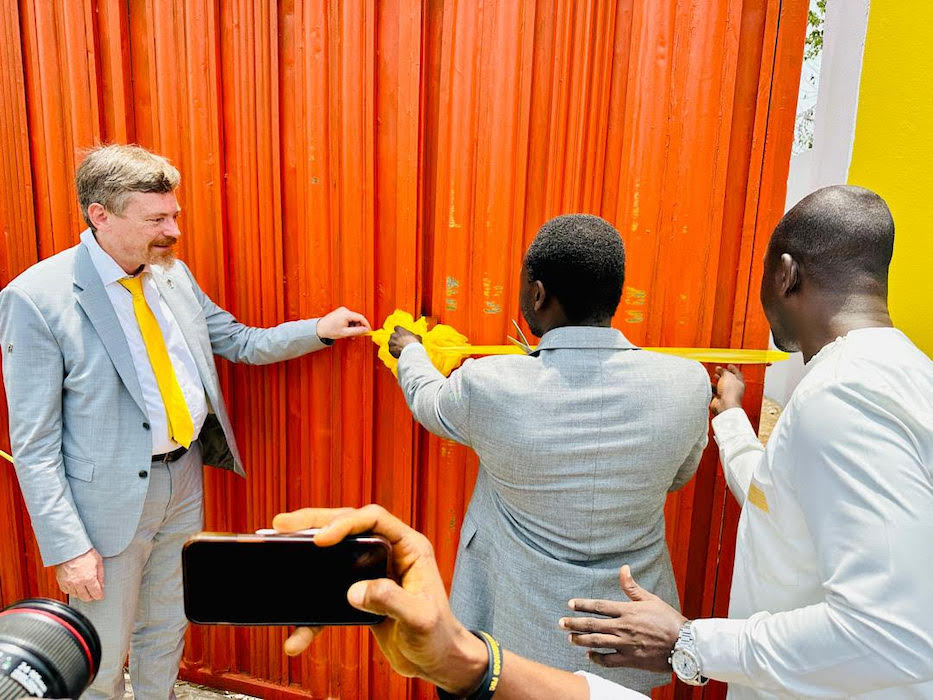
Through the Boosting Agriculture and Food Security project many women and youth now own tree crop farms across the country. With the new cashew processing factory in operation, Solidaridad and its partners have successfully launched a facility that will boost the livelihoods of cashew farmers, while providing new opportunities for growth in Sierra Leone.

